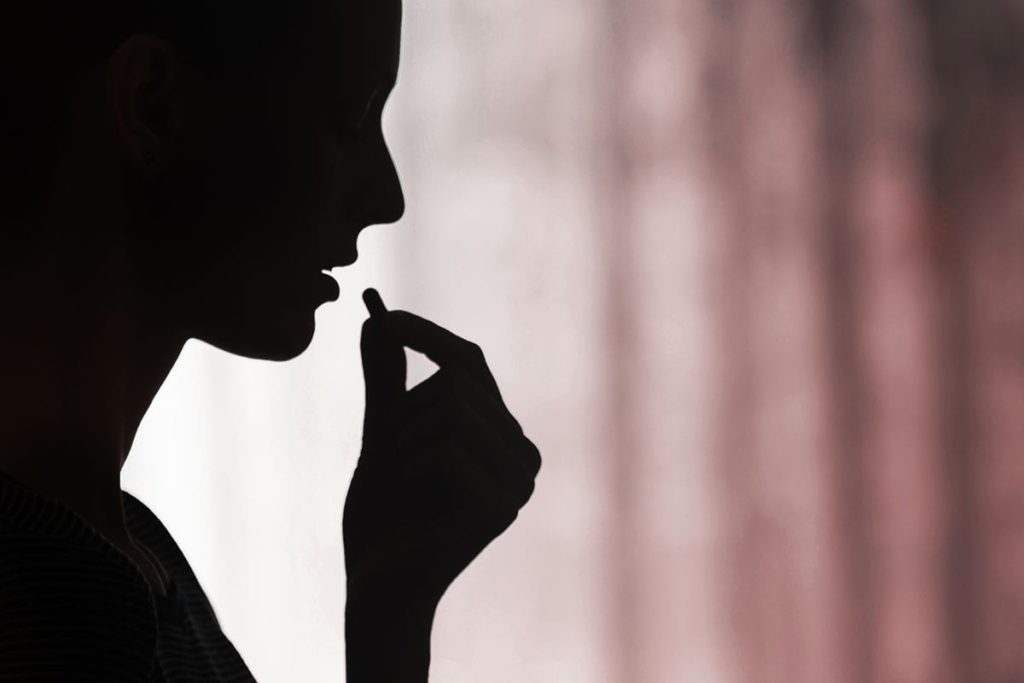In 2020, we’re witnessing a deadly clash of epidemics – and we might not even realize it. One of these global health crises is the novel coronavirus; the other is the unforgiving opioid pandemic. Unfortunately, neither wide-sweeping ailment seems to have a definite end in sight.
As it turns out, alcohol and drug abuse can put drug addicts at a higher risk of contracting COVID-19 – or experiencing more severe consequences. Someone who relapses on opioids during the novel coronavirus global health crisis, whether from loneliness, lack of support, or living with toxic family members, is at higher risk for contracting COVID-19 and suffering its worst effects.
Everyone seems to be aware of those in an “at-risk” category for the novel coronavirus, such as the elderly. Even the Centers for Disease Control identifies those over 65 and others with underlying medical conditions as being the most-at-risk.
However, there is less talk about how substance use disorders can worsen the symptoms of COVID-19 and increase the chances of the virus spreading.
Please be advised that this article does not claim to offer direct medical advice. All concerns regarding addiction and the COVID-19 pandemic should be directly addressed with a physician or other medical professional.

1. Drug And Alcohol Abuse Weaken The Immune System
Opioid use disorder puts an immense amount of stress on someone’s body. An addict trying to get a “fix” takes a toll on their physical well-being. The entire process of using opioids, from using the drug to withdrawing from it, can put immense stress on someone’s brain and body.
For example, withdrawal from oxycontin and other legal and illegal opioids might include:
- Excess sweating
- Increased blood pressure
- Body aches
- Fever
- Diarrhea
- Hallucinations
- Nausea
These withdrawal symptoms can put severe stress on a person’s body and decrease its ability to fight off infections and other ailments. In turn, this can make it more difficult for someone’s body to fight off COVID-19 and its subsequent illnesses, like Neumonia, as well.
The collateral damage that results from trying to get a “fix” is also immeasurable. Merely going outside, meeting with others, and visiting different places can spread the virus and increase the chances of someone else picking it up.
Mental illnesses also affect someone’s immune system and overall well being. We know, it seems hard to believe. But diseases like depression can increase the risk of a heart attack, intensify pain sensitivity, cause headaches, and weaken the immune system, according to Healthline. Depression can also lead to opioid abuse and co-occur with drug dependence. Sometimes, depression is even an effect of long-term drug abuse.
2. Opioids Put Addicts In Risky Situations
Those in recovery from substance use disorders and drug dependency understand the severity of the situations that addiction to drugs put them in. People who relapse understand this as well, but unfortunately it doesn’t stop them from entering these risky citations.
During the COVID-19 pandemic, the positions people put themselves in to attain drugs become even more dangerous. For example, the situation one puts themselves in while searching for drugs can expose them to the novel coronavirus. They may meet many strangers while looking for a drug, or meet with people they normally wouldn’t purchase a drug.

To attain more heroin or other opioids, relapsing drug addicts might break social distancing orders to buy drugs from their dealer or unnecessarily visit a doctor’s office.
Opioid addicts frequently share needles with other addicts, increasing the risk of transmission.
People in recovery frequently recall the riskiest situations they’ve put themselves in. Addicts who relapse are likely to end up in the same, or worse circumstances, as before they got sober – because they’re also at risk for a dangerous coronavirus.
3. Opioids Can Hurt Someone’s Lungs
In many of its deadly cases, COVID-19 aims its attack at the infected person’s lungs. One of its most classic symptoms is the infamous dry cough. Although other symptoms exist, like fever, fatigue, muscle aches, and body aches, pneumonia might be the deadliest side effect of coronavirus.
A large number of people addicted to opioids employ smoking as a primary method to get high. Smoking provides the same effects, such as euphoria, to an addict that injecting drugs does.
Those who smoke are more susceptible to contracting the novel coronavirus. According to the World Health Organization, smoking tobacco increases the risk of transmission because many people share pipes and other mouthpieces during the act. Smokers also sometimes have reduced lung capacity, which can increase the risk of serious illnesses. Of course, these consequences apply to more than just tobacco smokers. They also apply to people who smoke heroin and other types of opioids.
There are ways that an addict can protect themselves from getting COVID-19 if they’ve relapsed. Be sure to:
- Wash your hands diligently
- Refuse to share any type of pipe, joint, or other intravenous devices (like needles) with other people
- Seek out online support groups
- Avoid in-person contact
However, the best way to prevent the transmission and contraction of COVID-19 is to admit into an inpatient addiction treatment center.
Addiction treatment can help someone recover fully from drug abuse and protect them from risky situations that inevitably accompany drug use. If you’re wondering whether treatment programs are worth the risk during COVID-19, you should check out our article weighing the pros and cons of each choice. You might be surprised at what you decide!
Support groups, like online Alcoholics Anonymous and Narcotics Anonymous meetings, along with other forms of help are also available to suffering addicts and alcoholics. If you or a loved one has relapsed on alcohol or drugs during COVID-19, call our toll-free number today or fill out our contact form. Our admissions specialists will help you find out more about recovery from substance abuse and mental health conditions.
